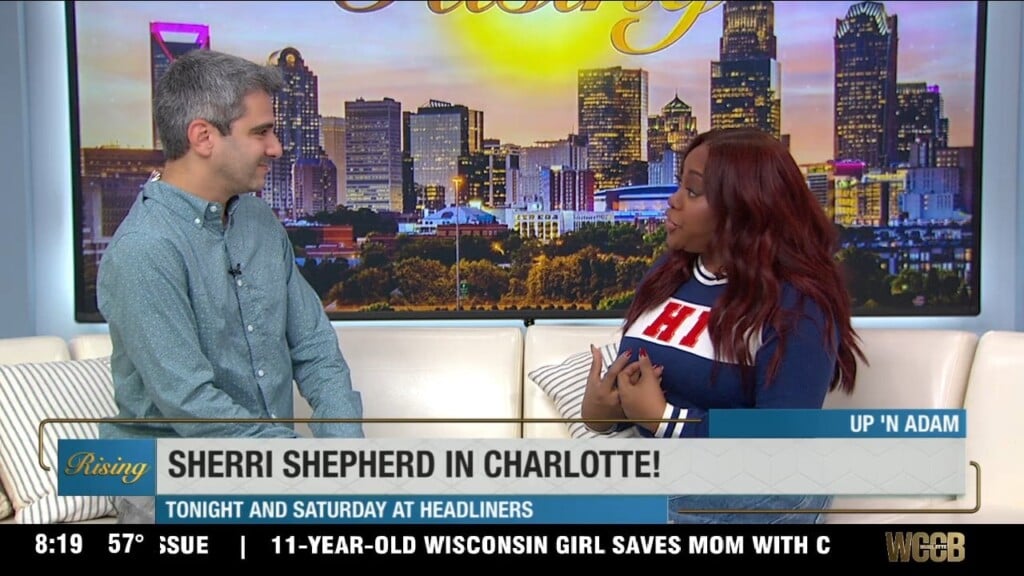RICHMOND, Va. (AP) — Democrat Abigail Spanberger won the Virginia governor’s race Tuesday, defeating Republican Lt. Gov. Winsome Earle-Sears to give Democrats a key victory heading into the 2026 midterm elections and make history as the first-ever woman to lead the commonwealth.
Spanberger’s victory will flip partisan control of the governor’s office when the former congresswoman and CIA case officer succeeds outgoing Republican Gov. Glenn Youngkin. She won with a campaign emphasizing economic issues, a strategy that may serve as a model for other Democrats in next year’s elections as they try to break President Donald Trump’s and Republicans’ hold on power in Washington and gain ground in statehouses.

Virginia Democratic gubernatorial candidate Abigail Spanberger speaks during a campaign event with former President Barack Obama, Saturday, Nov. 1, 2025, in Norfolk, Va. (AP Photo/Steve Helber)
Throughout the campaign, Spanberger made carefully crafted economic arguments against Trump’s policies, while she spent considerable sums on ads tying Earle-Sears to the president. She campaigned across the state, including in Republican-leaning areas. Yet she also emphasized her support for abortion rights in the last Southern state that has not enacted new restrictions or bans on the procedure, and she railed against Trump’s Department of Government Efficiency, the U.S. government shutdown and their negative impact on a state with several hundred thousand federal employees.
That approach helped corral Democrats’ core supporters while attracting the kinds of swing voters who elected Youngkin four years ago. It also continued a historical trend for Virginia: Since Jimmy Carter won the White House in 1976, Virginia has backed a governor from the opposite party of every first-term president in the following year. This year is a special case, given the gap between Trump’s terms.
Republicans, meanwhile, must grapple again with a battleground loss by an arch-conservative from the president’s party.
Trump never campaigned for Earle-Sears, though he did give her his tepid support. Their uneasy alliance raises questions about the ideal Republican nominee for contested general elections and how the president’s volatile standing with voters might affect GOP candidates next November. The midterm elections will settle statehouse control in dozens of states and determine whether Republicans maintain majorities in Washington for the final years of Trump’s presidency.
Earle-Sears 61, would have become the first Black woman to be elected as a governor in the U.S.
Spanberger balanced policy and biography
Spanberger, 46, ran on a pledge to protect Virginia’s economy from the aggressive tactics of Trump’s second administration, which has culled the civil service, levied tariffs and shepherded a reconciliation bill curtailing the state’s already fragile health care system.
Accountant Sherry Kohan, 56, who cast her ballot at the Aurora Hills Library in Arlington, said she used to think of herself as a Republican but hasn’t felt aligned with either party since Trump’s first term. She said her vote for Spanberger was a vote against Trump.
Stephanie Uhl, 38, who also said she voted for Spanberger, had the federal government shutdown on her mind when casting her ballot at the library in Arlington, just across the river from Washington.
Uhl was working without pay for the Defense Department and though she said, “I can afford (it) just fine,” she was bothered “that it affects so many other people.”
Spanberger’s background also figured heavily into her victory. As a former CIA case officer, she noted her public service and national security credentials. And she pitched herself as the mother of daughters educated in Virginia’s public schools and a Capitol Hill veteran who represented a swing district and worked across the aisle.
The pitch helped the Democratic nominee withstand Earle-Sears’ attacks on cultural issues, notably the Republican’s assertion that Spanberger is an extremist on civil rights and health care for transgender people. Spanberger, who consistently argued that local school districts should decide whether transgender students can participate in competitive sports, cast her opponent as the candidate more out of step with the middle of the Virginia electorate.
Her strategy echoed the approach Democrats used to flip U.S. House control in the 2018 midterms, halfway through Trump’s first presidency. Spanberger was among several high-profile women who brought national security or military credentials to campaigns in battleground districts. Another of those women, Rep. Mikie Sherrill, was vying Tuesday to become New Jersey’s Democratic governor.
Together, they were held up as examples of successful mainstream Democrats at a time when the party’s left flank has been ascendent, most notably Zohran Mamdani, a democratic socialist and the party’s nominee in Tuesday’s New York mayoral contest.
In Congress, Spanberger was a quiet workhorse
When she first got to Washington, Spanberger concentrated on lower-profile issues: bringing broadband to rural areas, fighting drug trafficking and veterans’ services. And she quickly established a reputation for working with colleagues across the political spectrum.
In her new role, she will face tightening economic projections, rising utility costs and growing unemployment — in part because of the Trump administration’s federal contraction. But she could have the advantage of a friendly Legislature if Democrats are able to maintain their majority in the House of Delegates. All 100 seats in that chamber were on the ballot Tuesday, as were other statewide offices, including lieutenant governor and attorney general. The state Senate, also controlled by Democrats, was not on the ballot this year. If Democrats have the so-called trifecta in Richmond, as Republicans do now in Washington, they could enact many policy priorities that lawmakers advanced to Youngkin only for him to veto the bills.
Spanberger won despite a late surprise that threatened Virginia’s Democratic ticket. In October, news reports revealed that Jay Jones, the Democratic nominee for attorney general, sent texts in 2022 suggesting the former Republican House speaker get “two bullets to the head.”
Republicans across the U.S., including Trump and Earle-Sears, demanded Jones drop out. He apologized and said he was ashamed of the messages but declined to leave the race.
The controversy dogged Spanberger. She condemned the text messages but stopped short of asking Jones to withdraw from the race, and she notably did not withdraw her endorsement.
“I have denounced political violence, political rhetoric,” Spanberger said in her lone debate with Earle-Sears, “no matter who is leading the charge.”




